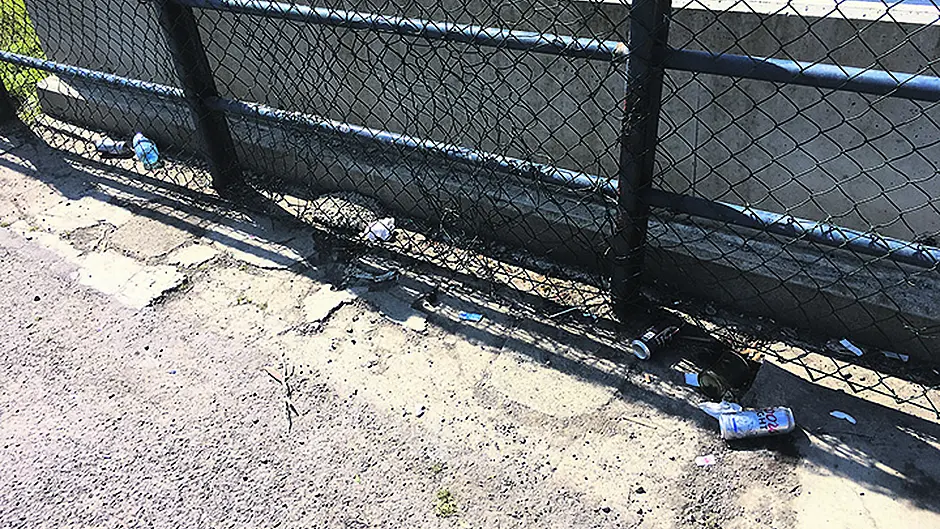Bantry Bay has been branded ‘heavily littered' in the first nationwide survey of Ireland's rivers, beaches and harbours.
BANTRY Bay, which recently underwent an €9m upgrade, has been branded ‘heavily littered’ in the first nationwide survey of Ireland’s rivers, beaches and harbours.
And now vested groups are planning a meeting to address the issue head-on.
The An Taisce survey, on behalf of Irish Business Against Litter (IBAL), found heavy levels of cans, glass and plastic bottles, paper items, bottle lids and tops in the water.
And in the immediate environs – paths and car parks – it found heavy levels of sweet papers, fast-food wrappers, plastic bottles and lower levels of cans, glass bottles, cigarette butts and other paper items. It found no marine-related litter.
Giving Bantry the second worst classification, after ‘litter blackspot’, the report noted: ‘There were definite accumulations of litter on the north side of the bay past the car park towards SuperValu. Much of the water-based litter was trapped in the seaweed and in the rocks. The south of the site towards Bantry Marina had small amounts of litter. This was more water-based than land-based.’
In recent weeks The Southern Star has highlighted the issue of litter in the town, including beer cans piled up in a shopping trolley and other rubbish around the new amenity area which, though completed, is not yet open to the public. There was a damaged car, filled with rubbish, across the road.
Conor Horgan of IBAL said: ‘We are a small island and often subject to wet and windy weather. When someone casually drops a plastic bottle or cigarette butt on the street, the likelihood of it being blown into a local river or swept into a drain, to then enter the sea, is very high.’
Bantry’s performance has been met with widespread disappointment by local groups who now plan to hold a meeting to formulate an action plan.
Among the early proposals is for the Bantry Business Association, the Port of Cork, and the Tidy Towns to take to the water to tackle the litter. A lot of it is only accessible by water, as was noted in the report.
A collaborative approach would help the situation, said Adrian Cronin of the Business Association, who pointed out that several areas in the town had been building sites for the past few months.
Assistant harbourmaster Michael Murphy said they were already doing everything humanly possible with regard to litter, including holding several spring clean-ups involving the whole community.
‘However, we will convene a meeting of the Bay Users Forum shortly where we will discuss what to do. The situation is a lot better than it was five or six years ago, but I can never see it going away.’
Chairman of the well-respected local Tidy Towns group, Winnie O’Sullivan, said she was disappointed, but not surprised, by the result.
‘The problem is a combination of what is thrown in and what is washed up,’ she claimed.
Cllr Mary Hegarty (FG), who has been vocal on the issue, said the public had to take responsibility for litter.
‘The result isn’t reflective of the town, which is looking brilliant and which has come up a huge notch in terms of cleanliness,’ she said.
By comparison, Kinsale got the top ranking of ‘being clean to European norms’ while Crosshaven was deemed ‘moderately littered.’
IBAL has been publishing litter surveys since 2002 as part of its Anti-Litter League programme.
Conor Horgan added: ‘The objective of this new campaign is to rid our coasts and waterways of litter, as they are central to the country’s appeal to visitors, and an integral part of the clean image we project. Aside from this commercial motivation, our research brings into focus the broader issue of marine litter and the need to stem the vast amounts of plastic and other litter which is entering and killing our oceans.’








